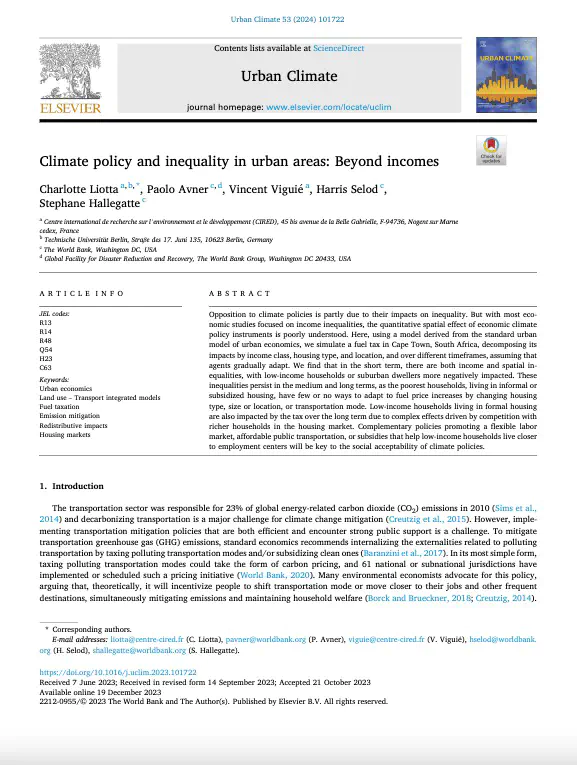Climate Policy and Inequality in Urban Areas: Beyond Incomes

Abstract
Opposition to climate policies is partly due to their impacts on inequality. But with most economic studies focused on income inequalities, the quantitative spatial effect of economic climate policy instruments is poorly understood. Here, using a model derived from the standard urban model of urban economics, we simulate a fuel tax in Cape Town, South Africa, decomposing its impacts by income class, housing type, and location, and over different timeframes, assuming that agents gradually adapt. We find that in the short term, there are both income and spatial inequalities, with low-income households or suburban dwellers more negatively impacted. These inequalities persist in the medium and long terms, as the poorest households, living in informal or subsidized housing, have few or no ways to adapt to fuel price increases by changing housing type, size or location, or transportation mode. Low-income households living in formal housing are also impacted by the tax over the long term due to complex effects driven by competition with richer households in the housing market. Complementary policies promoting a flexible labor market, affordable public transportation, or subsidies that help low-income households live closer to employment centers will be key to the social acceptability of climate policies.